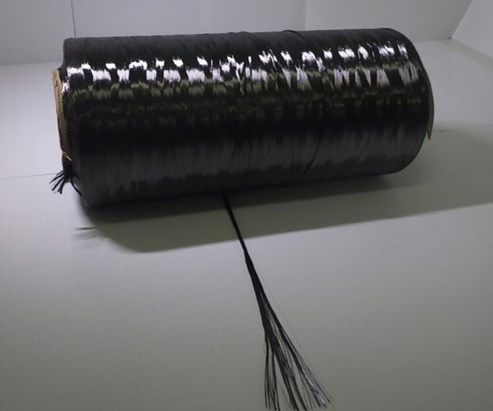Toray's Carbon Fiber Reinforced Thermoplastic Advances Poised to Enhance Cost/Performance of Molded Products
Toray Industries’ high tensile modulus carbon fiber thermoplastic pellets said to be optimized for injection molding of complex, rigid and lightweight parts.
Japan’s Toray Industries (U.S. office in New York City), has developed what is said to be a high tensile modulus thermoplastic carbon fiber pellet that has been optimized for injection molding.
The first such pellets utilized PPS with a 30% carbon fiber content, according to a company spokesman, “The technology is applicable to nylon resins and other thermoplastics, so we well proceed with further data acquisition.” Toray anticipates that its new carbon fiber reinforced thermoplastic pellets will enable the efficient production of complex, rigid parts that are also light, thereby lowering environmental impact, and could greatly enhance cost performance.
Toray will push ahead with research and development to commercialize the fiber and pellets within the next three years.
Toray markets the Torayca T series of high-strength carbon fibers for pressure vessel, automotive, and other industrial applications, as well as for aerospace. In 2014, it launched the Torayca T1100G carbon fiber, which has been shown to offer a world-leading tensile strength of 7.0 GPa and a tensile modulus of elasticity of 320 GPa.
In 2018, the company further expanded the potential of carbon fiber for high-end sports equipment and aerospace structural materials by commercializing Torayca M40X. This offering employs proprietary nano-level fiber structure control technology to balance a high compression strength and a tensile strength of 5.7 GPa, with a tensile modulus of 377 GPa. However, the fiber’s diameter of 5 microns constrains productivity, making costs an issue.

In the newly announced development effort, Toray tackled that challenge by pursuing further advances with its Torayca MX series control technology to create 7-micron fibers with uniform internal structures. The result was a fiber with a tensile modulus of elasticity of 390 GPa--around 70% higher than the standard level of Torayca series offerings for industrial applications, delivering a much better cost performance.
Torayca thermoplastic pellets incorporating the newly developed carbon fibers maintain longer fibers than conventional high tensile modulus offerings after molding processes. The pellets can thus deliver a tensile modulus of 41 GPa. That is comparable to the 45 GPa of magnesium alloys. At the same time pellets have a specific gravity of just 1.4, against the 1.8 of magnesium alloy. Using these pellets to make complex parts through injection molding processes would significantly enhance productivity and contribute much to lightening parts.
Toray looks to cultivate diverse applications for its advanced pellets, including for parts in lightweight next-generation automobiles and in industry in general. The new carbon fiber should contribute to the Group’s vision of balancing greenhouse gas emissions and absorption worldwide through the use of parts that are lighter and more energy efficient.
Related Content
-
Prices Bottom Out for Volume Resins?
Flat-to-down trajectory underway for fourth quarter for commodity resins.
-
NPE2024 Materials: Spotlight on Sustainability with Performance
Across the show, sustainability ruled in new materials technology, from polyolefins and engineering resins to biobased materials.
-
Automotive Awards Highlight ‘Firsts,’ Emerging Technologies
Annual SPE event recognizes sustainability as a major theme.
















